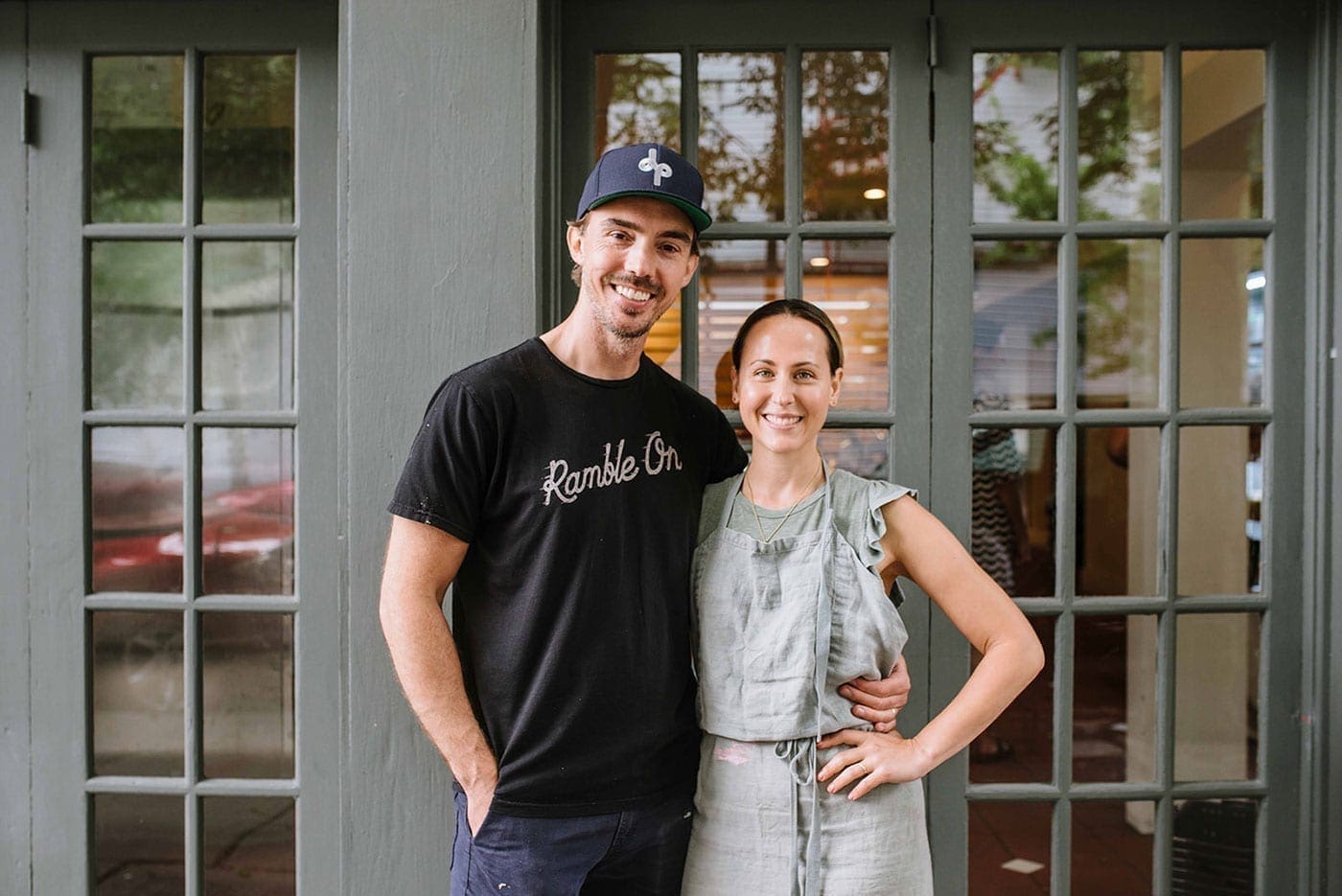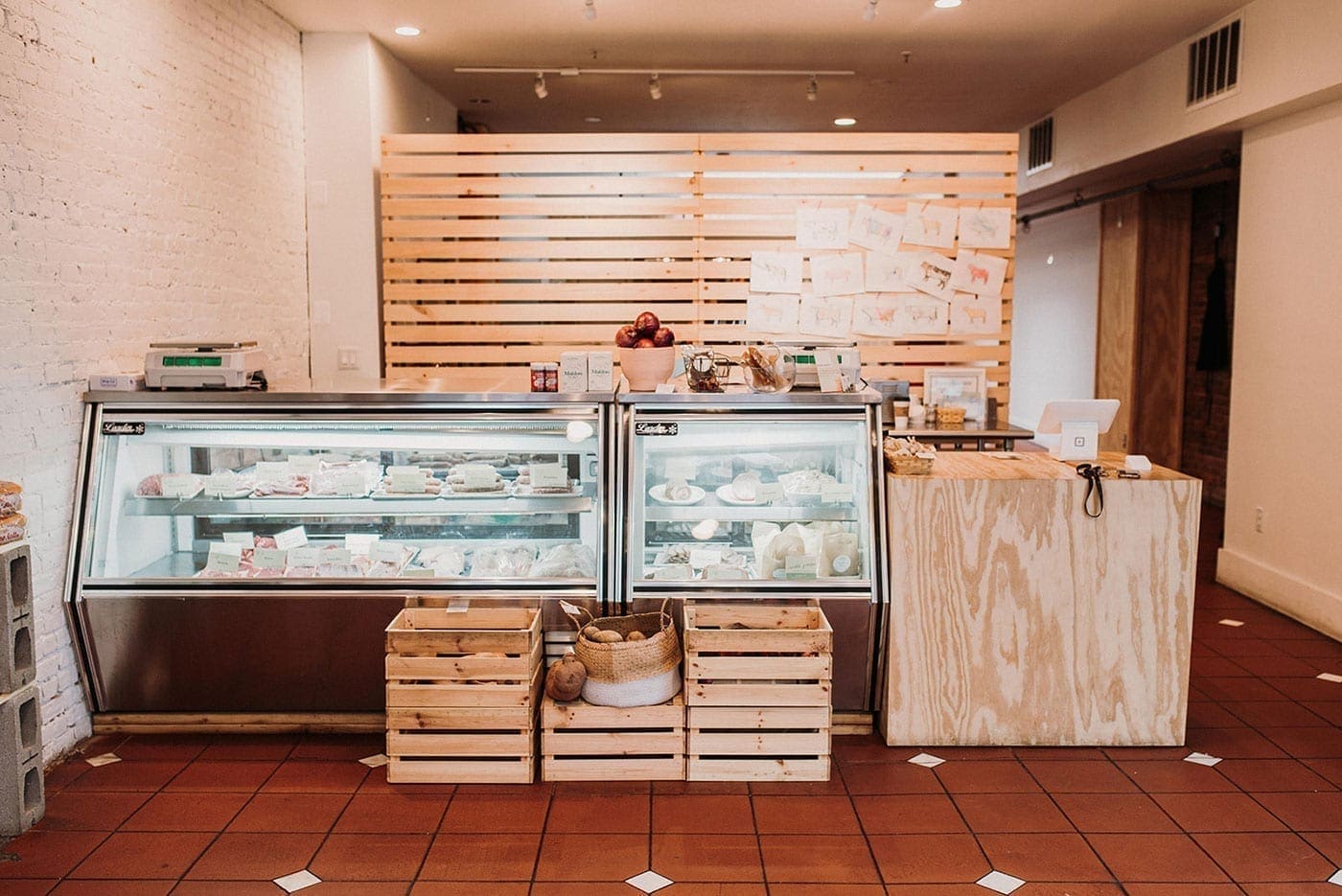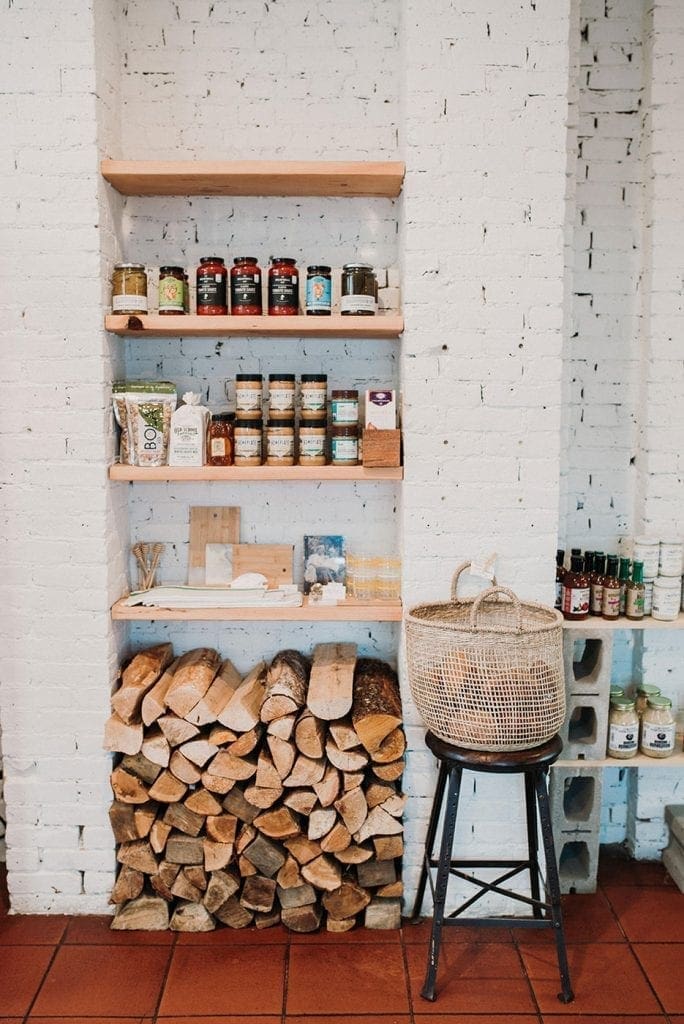— Darke Pines takes sustainable meat sourcing into the 21st century in Downtown Jersey City.
Animal agriculture is an increasingly unsustainable industry in America. Because of cost effectiveness and availability, Americans have adapted to rely on mass-produced meat and poultry which is not only cheaper, but more readily available. However, many butchers and restaurants nowadays are sourcing meat from local farms to promote sustainability, quality, health, and anti-cruelty. I sat down to talk with Will Messmer of Darke Pines in Jersey City, which has taken butchery into the 21st century with viable practices.
The shop, which opened in April of 2018, is the brainchild of Messmer and his wife, Erica. After years of longing toward a career change, the couple settled on butchery as their aim due to the growing need for sustainable vendors. Living in New York City at the time, Dickson’s Farmstand Meats in Chelsea Market was what originally piqued the couple’s interest. They felt that the shop put out products and practices that exudes exactly what butchery should be.

One problem arose, neither Messmer or his wife had any experience in butchery. Determined and goal-orientated, Messmer dove into a level of obsession to learn the tools needed to run a successful version of his new dream. “I obsessed over butchery, I trailed at several butcher shops for two, three days at a time—I learned that way,” he told me, “I learned a lot, but I still accepted that we needed to open the shop with trained butchers on staff if we wanted to be successful.” That’s where Giancarlo Sbarbaro, their head butcher, comes into play.

With a plan in motion, the next step was settling on location. Messmer admitted to me that Jersey City was never really in the mix of where they had planned to open their doors. Instead, they looked at places like Alabama, Maine, and even Copenhagen. However, when they moved across the river into Jersey City, a lack of butcher shops in the area showed why it might be the perfect location for them. “I wanted to get good quality meat to cook at home, and I couldn’t find it. I couldn’t even find a good sandwich in the area,” Messmer stated. Quickly, they realized that the demand for a well-rounded butcher shop was right in front of their eyes.
There were a few aspects that Messmer referred to as “must-haves” when they were planning the shop. Whole animal butchery, sourcing product through sustainable farms, a kitchen element for sandwiches and prepared foods, available produce, finding a use for every part of the animal, and as I mentioned before, a staff of expert butchers. Looking at the shop today, it is not wrong to assume that what Will and Erica Messmer conjure up in their dreams quickly turns to reality.
Upon walking through the front door of Darke Pines, you are immediately hit with the sight of the butcher case. A closer look shows that it is divided into two sections. On the left, raw meat is on display. You will find here your steaks, pork chops, duck legs, and whatever other proteins they have on hand. On the right is where they display their more prepared meats. House-cured meat in particular being one thing that sets Darke Pines apart. The usual bacon, salami, and pastrami are of course available for purchase; however, more obscure products like guanciale (cured bacon made from pork jowl) and porchetta di testa (an entirely deboned pig head that is marinated, cooked, and sliced to be eaten like salami) are what puts Darke Pines above other butcher shops in New Jersey.

And if you don’t see exactly what you are looking for, just ask any of the well-trained staff—they probably have what you seek somewhere in-house, which is one of the many advantages to whole animal butchery.
In addition to the butcher case, a small area for prepared foods is existent as well. Beverages, cheese, chicken liver mousse, and more can be found here. As well as expertly crafted sandwiches for purchase. With artisan bread, house made toppings and cured meats, the sandwiches at Darke Pines are not something to pass up.

I was really impressed with how Messmer has made sustainability the most important aspect of his business plan. “We get whole animals in and it is important to use every piece of it that we can. The porchetta di testa in the case is one example of that,” he explained. And while eating the tongue of a pig may not be the norm for much of America, it is important to understand it as a crucial piece in reducing food waste. Total sustainability to Messmer means finding a use for everything; whether it is selling something expected like a pork chop, or using the excess of bones to make stocks and soups, knowledge on how to use everything is key to his business.
Messmer went on to explain how working with high-quality farms is imperative when claiming to be a sustainable butcher shop. Not only are smaller farms better for the environment, but they treat the animals better than factory farms which is apparent in the quality of the meat. So, when opening the shop, the couple researched and tested several farms that would deliver the quality and sustainability that they sought for.
This type of business plan, while rewarding, has its challenges. It would be easier to order in the cuts that they have the highest demand for and ditch the whole animal aspect entirely, but easy is not what is important to Messmer. “With Christmas just around the corner, I needed a lot of rib roasts. I would’ve saved a ton on labor costs by just ordering already butchered rib roasts, that are ready to sell, but that would be going against what we stand for in a way,” Messmer explained while talking to me about customer demand for product. Of course, when demand is high, they may have to get whole beef primals in instead of the entire cow from time to time to increase quantity, but so long as the meat is still sourced ethically, Messmer does not see that as much of a disservice.
A dream for a better industry surrounding meat and butchery is what initially sparked the interest for Will and Erica Messmer’s business. After years of obsessing over butchery, and surrounding themselves with people who knew exactly what to do, they were able to turn their dream into reality in 2018. Darke Pines not only delivers quality products with ethically sound techniques, but it offers a glimpse into what butchery needs to become in the near future.
Peter Candia is the Food + Drink Editor at New Jersey Digest. A graduate of The Culinary Institute of America, Peter found a passion for writing midway through school and never looked back. He is a former line cook, server and bartender at top-rated restaurants in the tri-state area. In addition to food, Peter enjoys politics, music, sports and anything New Jersey.
- Peter Candiahttps://thedigestonline.com/author/petercandia/
- Peter Candiahttps://thedigestonline.com/author/petercandia/
- Peter Candiahttps://thedigestonline.com/author/petercandia/
- Peter Candiahttps://thedigestonline.com/author/petercandia/


